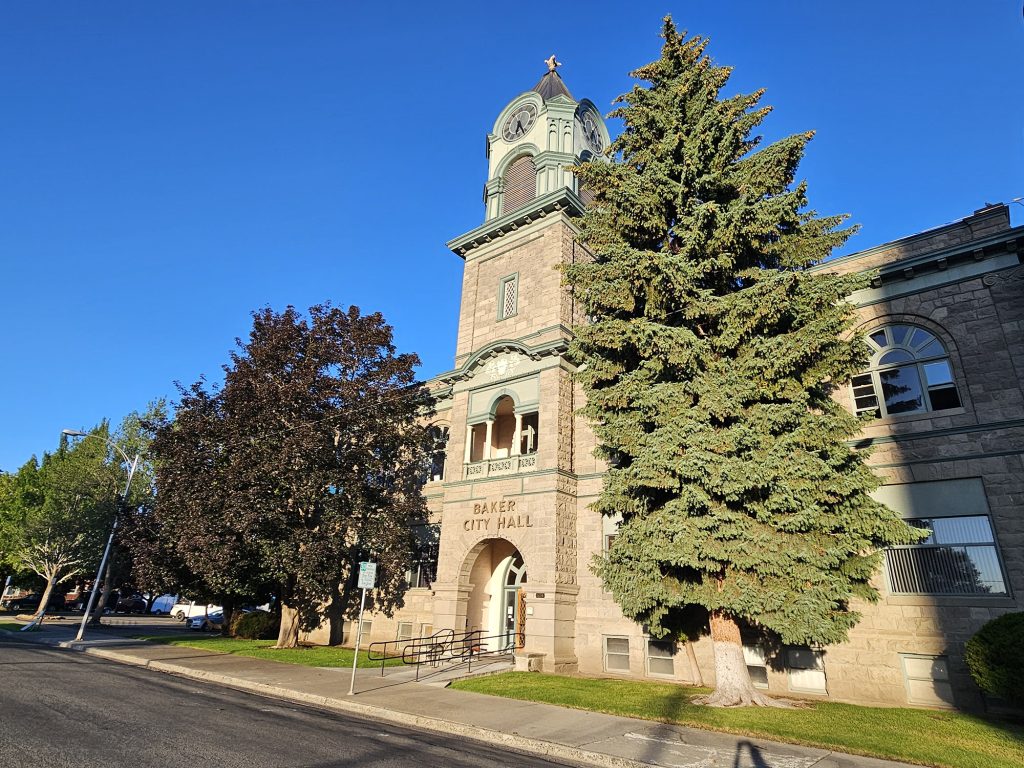Baker City received 13 proposals from firms interested in designing a tourism marketing campaign for the city.
The city council will consider whether to pick one of the applicants during the council’s regular meeting Tuesday, Sept. 9, at City Hall, 1655 First St. The meeting starts at 6 p.m.
The marketing contract is a major part of the city’s plan for spending the tax that guests pay when they stay at motels, vacation rental homes and other lodging businesses in the city.
The city has had its own lodging tax since July 1. The tax is 7% of the rental rate. That’s the same rate that’s been in place for more than 15 years. Baker County continues to charge the lodging tax, also at 7%, in unincorporated parts of the county and in the cities of Halfway, Sumpter and Unity.
Councilors voted in March to withdraw from a 2006 agreement with Baker County under which the county collected and administered the tax. The three county commissioners, advised by an appointed committee, distribute lodging tax revenue, which set record highs for three straight fiscal years, including $954,000 for the year ending June 30, 2024. Revenue declined slightly, to $940,000, for the fiscal year ending June 30, 2025.
Spending is also controlled by the 2006 agreement. It requires that 70% of revenue go to tourism promotion, and 25% to economic development. The county can keep up to 5% for its administration costs.
Baker City Manager Barry Murphy in 2024 asked county commissioners to change the 2006 agreement to guarantee the city a certain percentage of lodging taxes.
He pointed out that about 80% of the taxes are paid within the city limits. A precise amount is difficult to determine because companies that handle many vacation rental homes don’t report tax figures by area.
Commissioners declined to change the agreement.
In proposing to the city council to withdraw from the 2006 agreement with the county, Murphy told councilors that if the city had its own lodging tax program, it would no longer have to ask county commissioners for some of the revenue and thus would have more money available for tourism promotion and for the city’s general fund, including the police and fire departments.
A state law requires cities and counties spent at least 70% of lodging taxes for tourism marketing. Baker City can spend the remaining 30% as it chooses, including within the general fund, which had a shortfall in 2024 that prompted city councilors to impose a $10 monthly public safety fee on residential water/sewer accounts to help avoid layoffs in the police and fire departments.
Murphy said he expects the city to collect about $800,000 in the first year with its own lodging tax. He said the tax brought in $78,000 in July, and that doesn’t include taxes from vacation rentals and online hotel bookings.
Although the city has only been collecting lodging taxes for two months, since the start of the fiscal year July 1, county commissioners voted in May to give the city $425,000. The county had about $1.6 million in unspent lodging taxes at the start of the current fiscal year.
The city has used lodging taxes to hire a community development coordinator, Kara Miller.
The community development department, which is part of the general fund, has a budget this fiscal year of $129,000, including about $118,000 for the coordinator’s salary, health insurance and retirement.
Murphy said the other major use for lodging taxes is the tourism marketing contract.
He was surprised that 13 firms sent proposals. None is from Baker County.
Murphy said the contractor will create a strategy to attract tourists to the city, design and manage the city’s website and social media accounts, and create advertisements for both print and digital media.
The city will use lodging taxes to buy space in those publications, Murphy said.
A chief goal, according to the request for proposals the city sent this summer, is to “drive demand for overnight stays in Baker City year-round, with special attention to shoulder/off season.”
Murphy said he, Miller and Andrew Crabtree, the city’s human resource manager, reviewed and ranked each of the 13 proposals.
They recommend the council choose HUB Collective of Portland.
Murphy said he was impressed by HUB’s client list, which includes cities such as Portland, Walla Walla, Washington, Green River, Utah, and Truckee, California, as well as multiple counties, including Salt Lake County, Utah, and Snohomish County, Washington.
The company’s corporate clients include Nike, Pepsi and Umpqua Bank.
Other items on the Sept. 9 agenda include:
Kennel permit appeal
Kim Doyle, 3210 Ninth St., appealed Police Chief Ty Duby’s denial of her application for a kennel permit in early August.
The city’s municipal code prohibits residents from keeping more than four cats or dogs at their homes without a kennel permit.
Buying electric pickup truck for public works
The city staff is proposing to buy a 2025 Ford Lightning electric pickup truck for $50,375 from Legacy Ford through the Oregon Buys cooperative purchasing program. City officials asked for bids for a Chevrolet/GM and Dodge electric pickup, but a Chevrolet/GM dealer said they couldn’t compete with the Ford fleet price, and the Dodge vehicle isn’t in production, according to a staff report to councilors.
The public works department plans to use the four-wheel drive, half-ton four-door pickup primarily within the city limits as an experiment to see if an electric vehicle would be cheaper to use than a gas or diesel truck.

